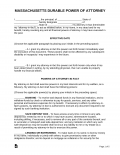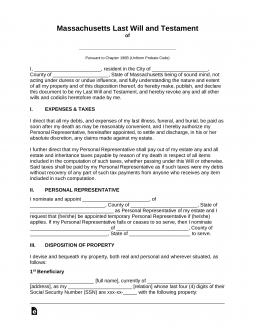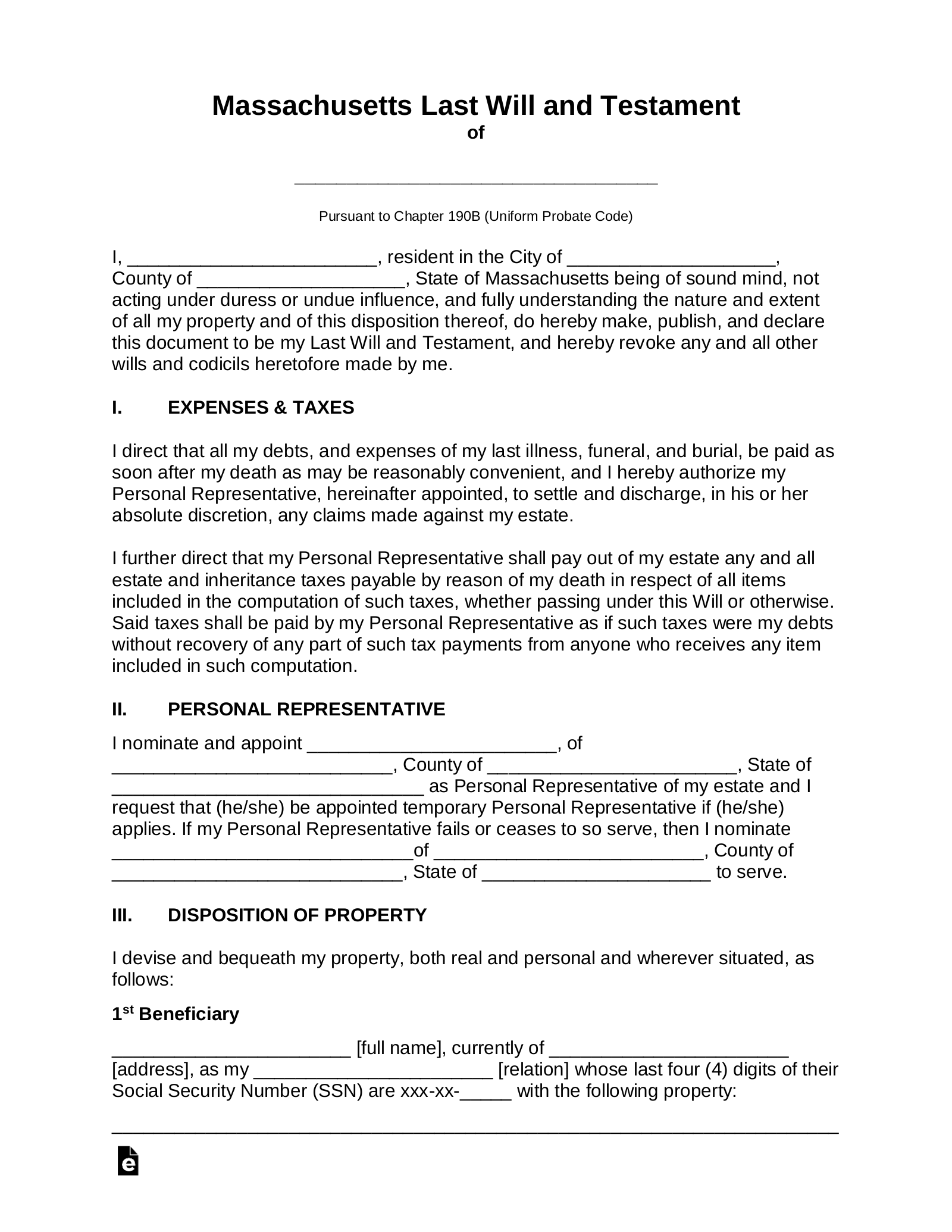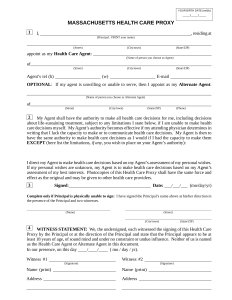Updated November 15, 2023
A Massachusetts last will and testament is a legally binding document used by an individual (“testator”) to outline how their estate should be distributed upon their death. Property and assets, such as financial accounts, fiduciary funds, life insurance policies, as well as real, personal, and even digital property, can all be designated to beneficiaries as stated in the testator’s will.
Signing Requirements
The will must be signed by at least two competent witnesses.[1]
State Definition
“Will” includes codicil and any testamentary instrument that merely appoints an executor, revokes or revises another will, nominates a guardian, or expressly excludes or limits the right of an individual or class to succeed to property of the decedent passing by intestate succession.[2]
Related Forms
Download: PDF
 Durable (Financial) Power of Attorney
Durable (Financial) Power of Attorney
Download: PDF



